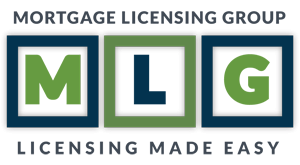What Happens if Your Mortgage Broker License is Out of Compliance?
 Mortgage broker license compliance can get a bit tricky sometimes. There are several federal and state regulatory issues that must meet a minimum threshold. These requirements often vary from one state to another, and one misstep can result in non-compliance. Ensuring continued compliance means that you must fulfill all requirements at every level of government.
Mortgage broker license compliance can get a bit tricky sometimes. There are several federal and state regulatory issues that must meet a minimum threshold. These requirements often vary from one state to another, and one misstep can result in non-compliance. Ensuring continued compliance means that you must fulfill all requirements at every level of government.
Unfortunately, non-compliance with state or federal requirements can result in sanctions, license suspension, or the complete revocation of the license. The process for getting a revoked license can become far more complex than maintaining compliance, and in some cases, it can even result in legal consequences.
The top reasons that result in non-compliance for mortgage brokers include:
- Violation of mortgage laws. Mortgage brokers are familiar with many mortgage laws. However, complying with the complex network of federal and state laws can become difficult. Mortgage brokers must ensure that they complete the following requirements:
- Adhere to the provisions of the state mortgage laws where they practice.
- Follow the provisions of the federal SAFE Mortgage Licensing Act of 2008.
- Make timely payments of all required fees.
- Meet continuing education requirements.
- File the required reports on mortgage activities that are required by state regulatory entities.
- Adhere to the written contracts and agreements with customers and partners.
- Disburse acquired funds when necessary.
- Comply with all laws to prevent a conviction of a felony or misdemeanor or the entry of a judgment for fraud, misrepresentation, or deceit.
- Failure to secure a surety bond. One major licensing requirement that must be met before a license can be issued is to secure a mortgage broker surety bond. This bond is a mechanism that protects the state and potential customers against any illegal actions that a mortgage broker might take. Similar to the mortgage broker license, the surety bond must also be renewed regularly. Without a surety bond, the mortgage license might be subject to suspension or revocation.
- Non-payment of due child support or legal judgments. Many states will also suspend a license if the license holder fails to make due payments to third parties. Commonly, these include child support payments or payments on judgments recovered in court by a creditor regarding the mortgage broker’s professional activities.
If you are a mortgage broker, license maintenance is critical in ensuring your livelihood. Unfortunately, violating the rules and regulations can result in multiple penalties, and the most common ones are defined by NMLS:
- Revoked: This status means that a regulator has taken action to revoke the license. It could result from not meeting SAFE legislation or state requirements. In this status, the mortgage broker would be unable to obtain or retain a license to conduct mortgage business in any jurisdiction. This determination may be appealed, but the licensee must comply with all requirements of the appeal process.
- Suspended: This status means that a regulator has taken action to suspend the license. A suspension may be appealed, but the licensee must comply with all requirements of the appeal process.
- Terminated: A license may be terminated for various reasons, including that it is expired and the licensee has not renewed it during a reinstatement period. It could also be terminated because the licensee has been ordered to surrender their license due to non-compliance.
The actions required to get a revoked, suspended, or terminated license reinstated vary, depending upon the severity of the infraction and the circumstances surrounding the licensee’s request for reinstatement. There are some instances where a revoked license can never be reinstated.
Fortunately, the process often allows mortgage brokers many opportunities to correct the action (or inaction) that resulted in the infraction. For instance, if the broker fails to renew their license before the annual deadline, they will have a period of reinstatement where they can request a renewal. Pending additional fees and actions, the broker would still be allowed to renew their license.
But if a license becomes suspended, the broker must adhere to legal restrictions. Most importantly, they cannot perform mortgage origination activities. In addition, proper disclosures must be made to those that the mortgage broker is working with so that everyone is informed of the circumstances.
The bottom line is that license maintenance and compliance are difficult. Still, it is much easier than correcting a scenario that results in the revocation, suspension, or termination of a license. The best way to ensure that you do not lose your license is by staying on top of mortgage license requirements. To learn more about staying compliant with mortgage broker requirements, contact Mortgage Licensing Group.
The Mortgage Licensing Group, Inc. is a full-service mortgage licensing firm headquartered in Southern California that is recognized throughout the industry as an experienced and reliable service provider. Established in 2006, our company has been at the forefront of the ever-changing rules and regulations, helping alleviate the often-daunting task of meeting our clientele’s diverse state licensing requirements.

